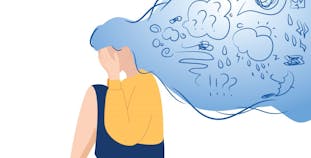February 04, 2021
Advance Online

Advance Online
When Psoriasis Impacts the Mind
Jocelyn Hall explores the connections among anxiety, depression, and psoriatic disease.

Jocelyn Hall explores the connections among anxiety, depression, and psoriatic disease.
We use cookies to offer you a better experience and analyze our site traffic. By continuing to use this website, you consent to the use of cookies in accordance with our Privacy Policy.